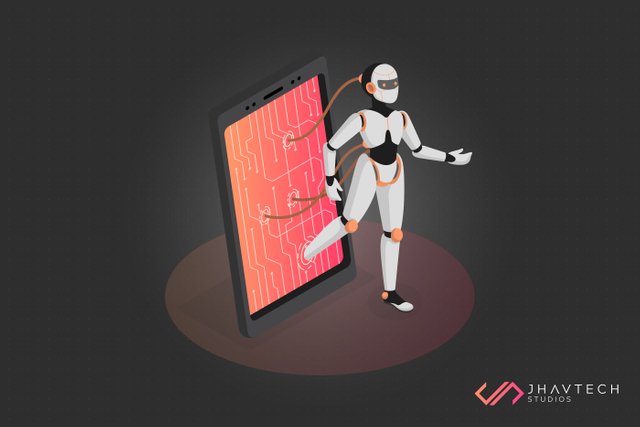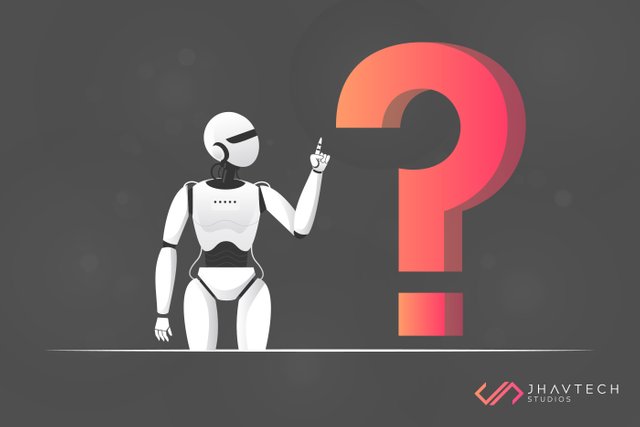Impact of Artificial Intelligence on Mobile App Development

The advent of Artificial Intelligence (AI) has significantly influenced the landscape of mobile app development in recent times. It is therefore not surprising that many entrepreneurs are seeking to integrate AI into their mobile app development projects.
It is important to note, however, that AI in this context does not solely refer to self-aware intelligent machines. Rather, it encompasses a broad spectrum of applications utilized by web and mobile app developers, such as machine learning, automatic analysis, cognitive computing, image and speech recognition.
If you’re among those looking for the ins and outs of AI-powered app development, then this blog post is for you.
AI has revolutionized the approach of developers towards the creation and enhancement of mobile applications. Apps powered by AI have the potential to offer customized experiences, augment user engagement, and enhance their overall functionality. Developers can also leverage AI to scrutinize user behavior and preferences, which can aid in the creation of tailored and personalized content.
Additionally, AI can assist developers in optimizing their applications for superior performance by analyzing user data and providing recommendations for enhancements. Moreover, AI can automate specific tasks, thereby expediting and streamlining the mobile app development process.
The following are some of the key ways in which AI is impacting mobile app development:
Enhanced Personalization
Artificial intelligence has the capability to gather and analyze user data with the purpose of crafting tailored experiences for individual users. To illustrate, an AI-driven music application can acquire knowledge of a user's listening preferences and subsequently suggest new songs that align with their taste. Similarly, an AI-driven shopping application can offer product recommendations by leveraging a user's previous purchases and browsing history.

Improved User Experience
Artificial intelligence can be utilized to enhance the user experience of mobile applications through various means. For instance, AI-driven chatbots have the capability to offer round-the-clock customer support and address user inquiries or concerns. AI-driven voice recognition can facilitate seamless interaction between users and applications. Additionally, AI-powered image recognition can be used to develop augmented reality and virtual reality experiences.
Reduction in Development Costs and Time
AI-driven tools have the capability to automate numerous repetitive and time-consuming tasks that are integral to the process of application development. This, in turn, can allow developers to concentrate on more creative aspects of their work, while concurrently reducing app development cost. For instance, AI-powered code generation tools can create code snippets based on natural language descriptions. Similarly, AI-powered testing tools can automatically detect and rectify bugs and errors in mobile apps.

New and More Innovative Apps
Artificial intelligence is facilitating the creation of novel applications that were previously unheard off. To illustrate, medical applications powered by AI possess the capability to diagnose diseases and recommend suitable treatments. Educational apps powered by AI can individualize learning experiences for every student. Additionally, financial applications powered by AI can effectively handle investments and offer sound financial advice.
Here are some examples of how AI is being utilized in mobile app development today:
Chatbots: These are AI-powered programs that are increasingly utilized in mobile applications to provide customer support, address user inquiries, and carry out various tasks. A prime example of this is the chatbot integrated into the Facebook Messenger app, which assists users in scheduling appointments, retrieving information, and more.
Voice Recognition: This innovative technology enables users to interact with mobile apps using their voices, thereby enhancing accessibility and user-friendliness. For instance, Google Maps allows users to navigate through voice commands, while Siri can be employed to control applications and execute tasks on Apple devices.
Image Recognition: In the context of machine vision, this technology empowers mobile applications to identify and categorize objects within images. This advancement has paved the way for the development of diverse and innovative apps, including augmented reality apps and medical imaging apps. To illustrate, the Amazon Shopping app enables users to scan barcodes to identify products and access additional information about them.
Machine Learning: This form of artificial intelligence enables mobile applications to learn and enhance their performance over time. This technology has been instrumental in the creation of apps that are capable of making predictions, offering recommendations, and making decisions based on data. A notable example is the Netflix app, which employs machine learning to suggest movies and TV shows to users based on their viewing history. Similarly, the Spotify app employs machine learning to recommend new music to users based on their listening habits.

Challenges in the Implementation of AI in App Development
Despite the significant benefits, the use of AI in mobile app development poses certain challenges. One of the major obstacles is the need for a substantial amount of data in order to achieve effectiveness. Developers must gather extensive data to train their algorithms adequately, which can be a costly and time-consuming process.
Another challenge is that artificial intelligence requires specialized skills to implement effectively. Developers need to have an in-depth understanding of machine learning algorithms and how they work in order to implement AI effectively in mobile app development.
In spite of these challenges, the future prospects of AI in mobile app development are promising indeed. As technology continues to evolve, we can expect to see more sophisticated use of AI in app development. For example, we may see more mobile apps that use natural language processing (NLP) to deliver more intuitive user experiences.
Final Thoughts
In conclusion, the impact of artificial intelligence on app development has been significant in recent years. AI-powered apps can provide personalized experiences, improve user engagement, and enhance overall functionality. Developers can use AI to analyze user behavior and preferences, which can help them create targeted and personalized content. While there are challenges in implementing AI in mobile app development, the future prospects are promising and we can expect to see more powerful and innovative AI-driven apps.